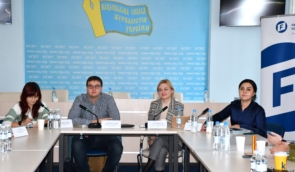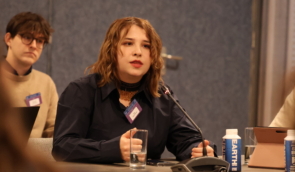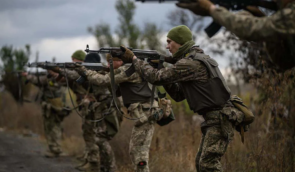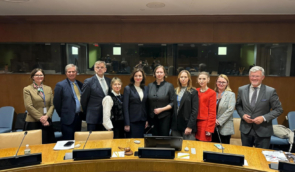Families of missing persons often do not know where to turn for help and what state guarantees are available – human rights defenders
The state does not have a single body or institution that would fully take care of the rights of people who went missing during the war or their families. Human rights defenders say that it is difficult for families of missing persons to understand which organization to turn to because there are many options all with different functions. In addition, affected families often do not know what guarantees from the state they can count on.
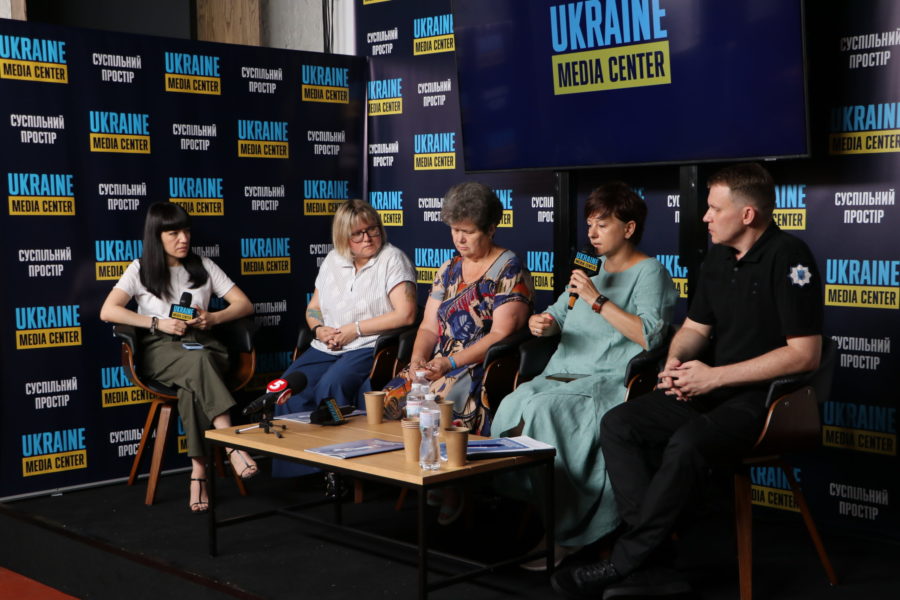
This became known on July 16 during the presentation of the report “How Ukraine searches for missing persons as a result of Russian aggression and supports their family members”, which was prepared by the ZMINA Human Rights Center and the Media Initiative for Human Rights. The analysis was based, in particular, on interviews with relatives of missing persons.
Due to the extensive system of bodies dealing with missing persons, relatives are forced to contact each of them and have to report the same information. The Commissioner for Issues of Persons Disappeared Under Special Circumstances has never become a “one-stop shop” to which such families can turn. In addition, the relatives of missing persons complain about the lack of proper coordination between state structures involved in the search for missing persons, which significantly slows down this process.
As the Advocacy Director of ZMINA Alyona Lunyova said, Ukraine faced the need to search for missing people back in 2014, when Russia started a war against Ukraine. But the law “On the legal status of persons who have disappeared under special circumstances” was adopted only in 2018. It was ineffective for a long time, and it does not work fully even now. Only in May 2022, the Register of persons missing under special circumstances, which includes military and civilian personnel, appeared.
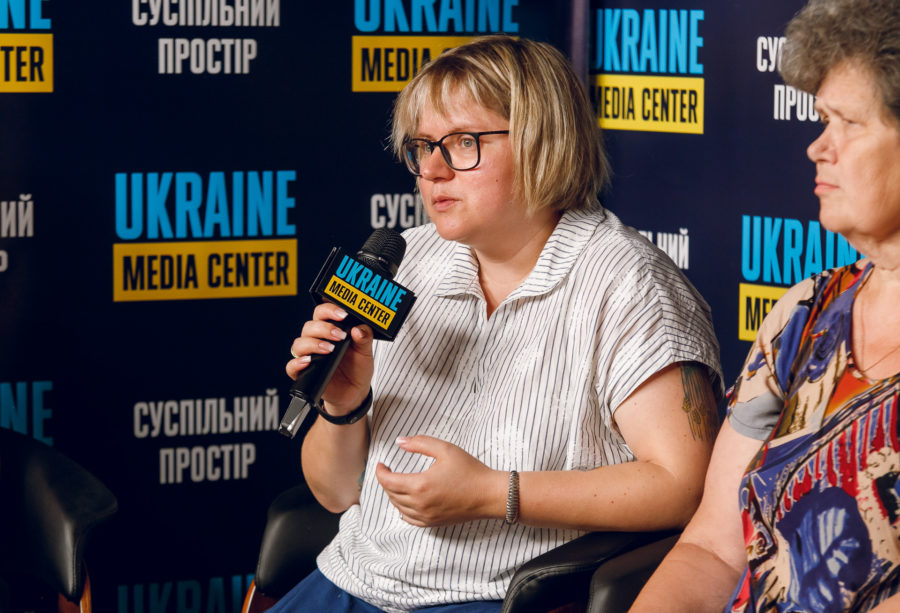 Alyona Lunyova. Photo: Media center
Alyona Lunyova. Photo: Media centerDmytro Bogatyuk , head of the Department of the Office for Persons Disappeared Under Special Circumstances of the Ministry of Internal Affairs of Ukraine, said that data on more than 51,000 people have been entered into the Register. Of them, there are about 42,000 people whose whereabouts are unknown, and about 7,000 people whose whereabouts are known. About 4,000 bodies have been identified – mostly fallen soldiers.
Among the problems identified by human rights defenders, the families of civilians who have disappeared do not understand where to turn, because the system is focused on missing military personnel. Moreover, the state provides fewer guarantees to families of missing civilians than to families where a soldier has disappeared. In particular, families of civilians cannot receive anything except a survivor’s pension. At the same time, most of the relatives of the missing persons interviewed by human rights defenders said that they did not know about the possibility of receiving such a pension. Currently, only a little more than three thousand relatives receive this benefit.
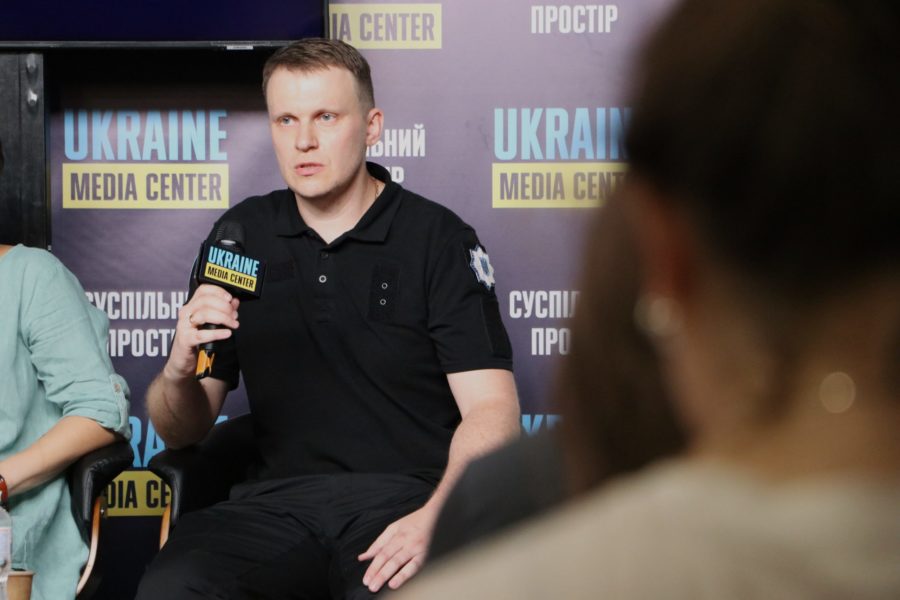 Dmytro Bogatyuk
Dmytro BogatyukAnother problem is that families are not entitled to deferment from mobilization if their missing relative is a civilian.
Olena Bilyachkova , coordinator of groups of families of prisoners and missing persons of the Media Initiative for Human Rights, reminded that the families of missing soldiers have the right to postpone mobilization in accordance with the law on mobilization. However, Resolution No. 560 of the CMU indicates that conscripted relatives of missing persons must provide a court decision on recognition of a relative as missing under special circumstances.
“Most families do not have such court decisions, as it is the basis for excluding a missing military person from the register and stopping the payment of financial support. This demand for a court decision contradicts the law “On the Legal Status of Persons Missing Under Special Circumstances”, which specifies that the status of a missing person is confirmed by entering the Unified Register of Persons Missing Under Special Circumstances,” says Bieliachkova and adds that the Resolution of the CMU No. 560 should be changed.
Families perceive these demands painfully, because they already have an unspecified loss in the family and are very afraid of losing other relatives again, notes Olena Bilyachkova.
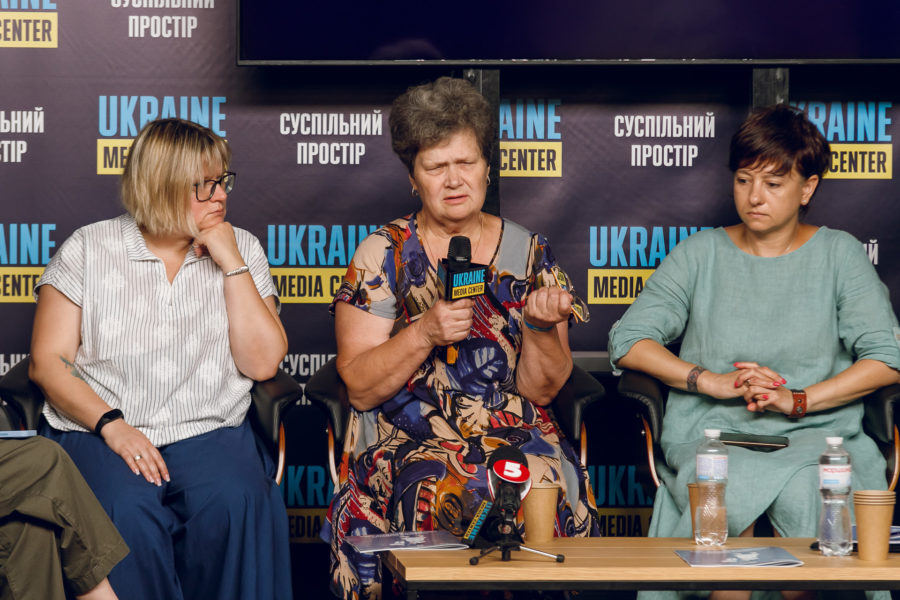
Lyubov Tkachenko , the mother of Roman Tkachenko , the missing serviceman of military unit A7376, is looking for her 16-month-old son. She said that only the family of the missing person should pursue their case. According to the woman, she and other parents of missing military sons turned to all authorities, but they had to search for information about their sons on their own.
“It is important to evaluate the effectiveness of the law (the Law “On the Legal Status of Persons Disappeared Under Special Circumstances”. – Ed.) through the people it is aimed at. And the biggest problem now is the state’s communication with the families of the missing about what kind of support these people can receive,” said Alyona Lunyova.
You can read the analytical report in Ukrainian here . Watch the video from the event at the link .
This event took place with the support of the “Partnership for a Strong Ukraine” Foundation, which is financed by the governments of Great Britain, Canada, the Netherlands, the United States of America, Finland, Switzerland and Sweden.
If you have found a spelling error, please, notify us by selecting that text and pressing Ctrl+Enter.


